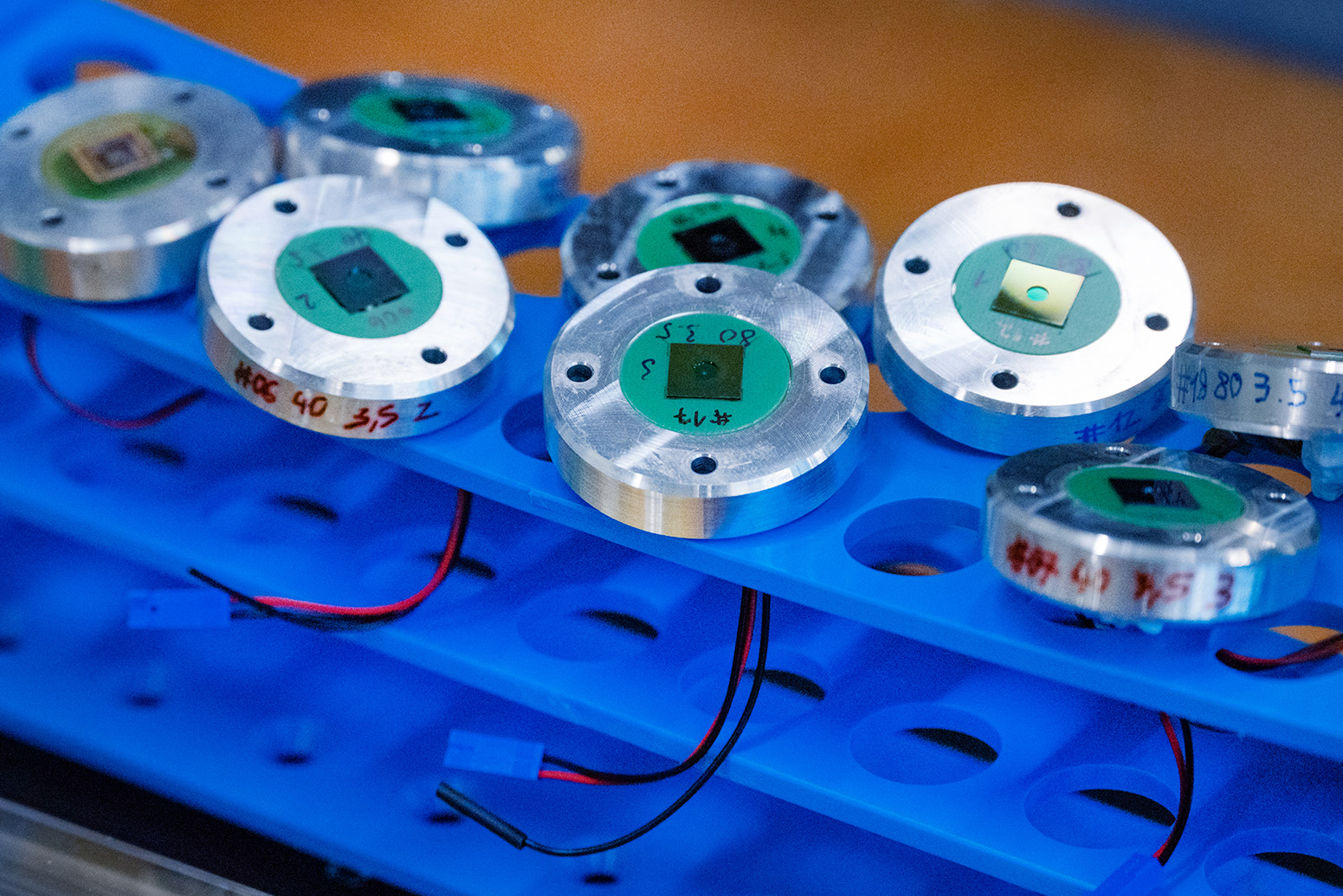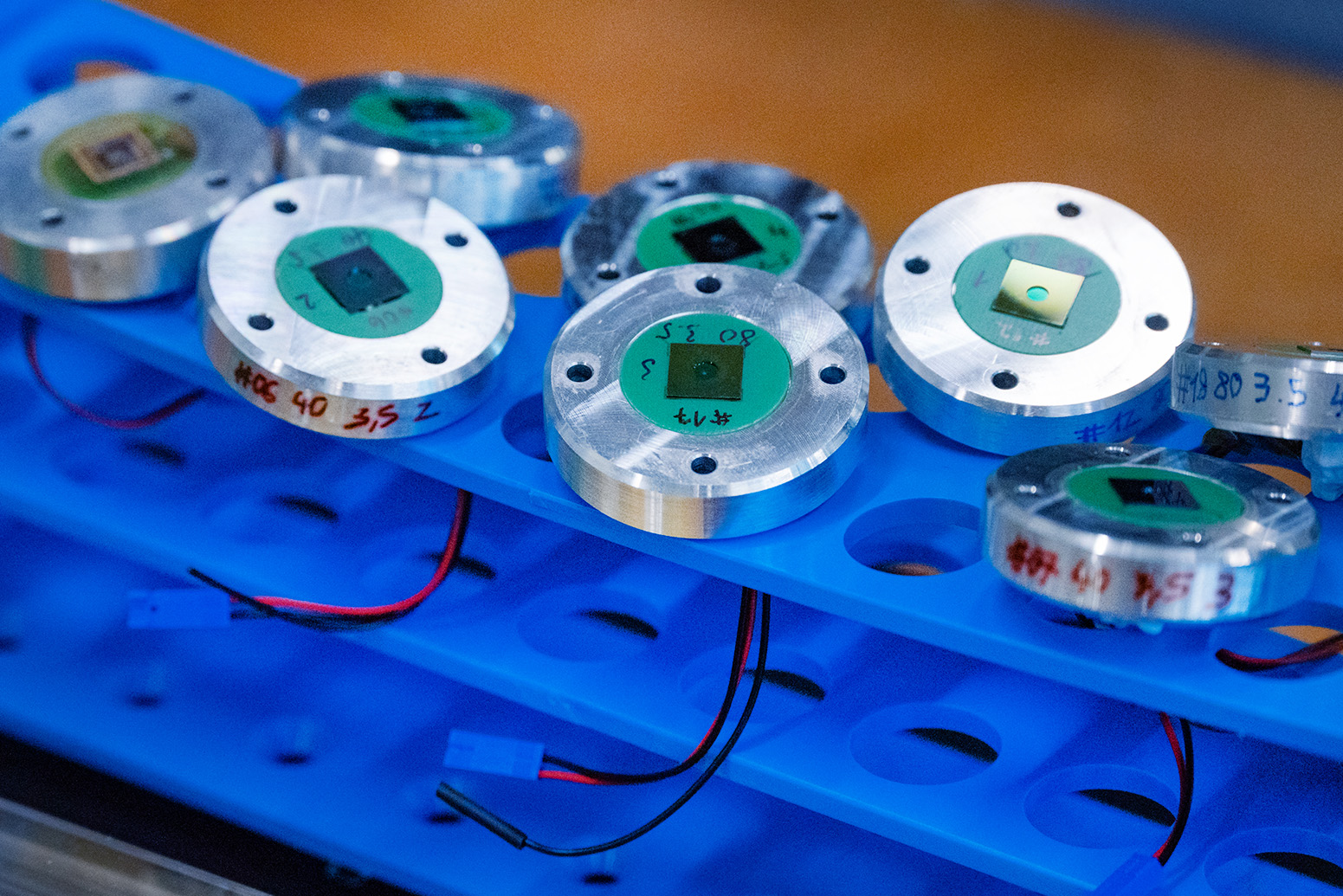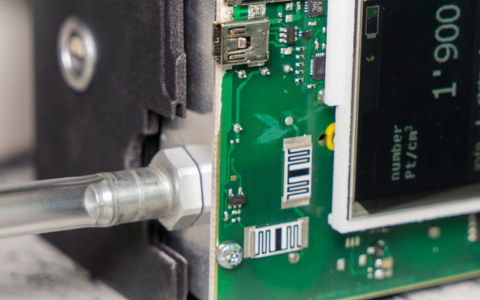Aerosol Technology Laboratory FHNW
In the Aerosol Laboratory, we enable the measurement and production of fine dust from the nanometer to micrometer range using commercial and self-developed devices.
We offer the production of aerosol samples with specific size and material properties, including but not limited to: Soot, primary and secondary (i.e. atmospherically relevant) organic materials, minerals/salts and metals. Applications include health effects studies, filter efficiency determination (e.g. respirator mask testing), surface coating of materials, calibration of measuring devices and more. We also aerosolize SI-traceable particles for applications that require precise size and material properties.
We offer online measurements of various physical properties of aerosol particles, including size distribution, number and mass concentration, lung deposited surface area (also known as LDSA or lung deposited surface area), light scattering and absorption. The online characterization also includes the determination of specific compositional properties (e.g. total carbon and black carbon). We use in-house developed deposition chambers to study the effect of particulate matter on cell cultures. On request, we can also prepare filter samples for electron microscopic characterization (performed at the FHNW) or for a more comprehensive chemical analysis in an external laboratory.
We can also operate our devices outside the laboratory to gain insights into local particulate matter pollution. This includes measurement campaigns with portable measuring devices for personal exposure studies, measurements of emissions (vehicles, construction machinery, wood burning, industry, etc.), as well as stationary long-term measurements to monitor air quality.
For more information or to discuss a collaboration, please contact Ernest Weingartner.
The Aerosol Technology Laboratory offers many systems for analyzing particulate matter and calibrating particulate matter measuring devices. Our aerosol group also develops customer-specific solutions. This is just a small selection of the systems available:
- Detection of nanoparticles with a mobility diameter greater than 2.5 nm.
- Size distribution measurement: based on particle mobility (diameter range 2.5 nm to 1 µm). Can be extended to particle diameters of 20 µm using aerodynamic and optical methods.
- Mass concentration measurement (e.g. PM10 or PM2.5).
- Diffusion measurement of particles to determine different measured variables (e.g. surface area deposited in the lungs).
- Absorption measurements for the determination of “black carbon” (soot) and spectroscopy measurements with filter photometers, photoacoustic methods and photothermal interferometry.
- Measurement of the aerosol carbon content using thermal methods.
- Oxidation reactors for the investigation of atmospheric processes.
- NACIVT deposition chamber for investigating the effects of particulate matter on cell cultures.
- Various preconditioning systems, including dilution, thermodenuders, fine dust coating, etc.
- Various reproducible aerosol generators.


